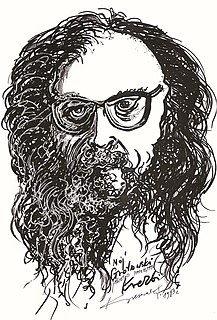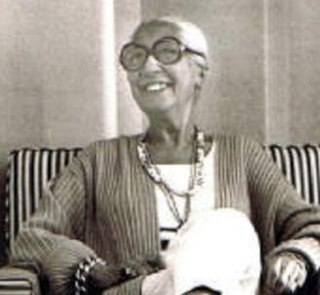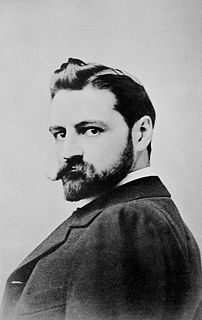 W
WJurij Leonowitsch Alschitz or Jurij Al'šic is a Russian - German theatre director, acting pedagogue and researcher specialising in applied theatre practice. He is known for developing a comprehensive artistic methodological approach for 21st century dramatic arts, ‘Training as Method’. He is the artistic director of the European Association for Theatre Culture and the World Theatre Training Institute AKT-ZENT/ITI, appointed by the International Theatre Institute as research centre for theatre training methods.
 W
WAristotle was a Greek philosopher and polymath during the Classical period in Ancient Greece. Taught by Plato, he was the founder of the Lyceum, the Peripatetic school of philosophy, and the Aristotelian tradition. His writings cover many subjects including physics, biology, zoology, metaphysics, logic, ethics, aesthetics, poetry, theatre, music, rhetoric, psychology, linguistics, economics, politics, meteorology, geology and government. Aristotle provided a complex synthesis of the various philosophies existing prior to him. It was above all from his teachings that the West inherited its intellectual lexicon, as well as problems and methods of inquiry. As a result, his philosophy has exerted a unique influence on almost every form of knowledge in the West and it continues to be a subject of contemporary philosophical discussion.
 W
WEugenio Barba is an Italian author and theatre director based in Denmark. He is the founder of the Odin Theatre and the International School of Theatre Anthropology, both located in Holstebro, Denmark.
 W
WRené Bazinet is a German-Canadian clown, mime, and stage and film actor. He is known for his work with Cirque du Soleil, first as a performing artist touring extensively with Saltimbanco, and later as the clown act creator and acting consultant for the show as well as for Cirque du Soleil's 2011 production Zarkana. He has also starred in shows at the Berlin Wintergarten and the Circus Roncalli.
 W
WAugusto Boal was a Brazilian theatre practitioner, drama theorist, and political activist. He was the founder of Theatre of the Oppressed, a theatrical form originally used in radical left popular education movements. Boal served one term as a Vereador in Rio de Janeiro from 1993 to 1997, where he developed legislative theatre.
 W
WAnne Bogart is an American theatre and opera director. She is currently one of the Artistic Directors of SITI Company, which she founded with Japanese director Tadashi Suzuki in 1992. She is a Professor at Columbia University where she runs the Graduate Directing Concentration and is the author of three books of essays on theater making: A Director Prepares; And Then, You Act; and What's the Story. She is a co-author, with Tina Landau of The Viewpoints Book, a "practical guide" to Viewpoints training and devising techniques. Conversations with Anne, a collection of interviews she has conducted with various notable artists was published in March 2012.
 W
WEugen Berthold Friedrich Brecht, known professionally as Bertolt Brecht, was a German theatre practitioner, playwright, and poet. Coming of age during the Weimar Republic, he had his first successes as a playwright in Munich and moved to Berlin in 1924, where he wrote The Threepenny Opera with Kurt Weill and began a lifelong collaboration with the composer Hanns Eisler. Immersed in Marxist thought during this period, he wrote didactic Lehrstücke and became a leading theoretician of epic theatre and the so-called V-effect.
 W
WPeter Stephen Paul Brook is an English theatre and film director who has been based in France since the early 1970s. He has won multiple Tony and Emmy Awards, a Laurence Olivier Award, the Praemium Imperiale, and the Prix Italia. He has been called "our greatest living theatre director".
 W
WGuru Mani Madhava Chakyar (15 February 1899 – 14 January 1990) was a celebrated master performance artist and Sanskrit scholar from Kerala, India, considered to be the greatest Chakyar Koothu and Koodiyattam artist and authority of modern times. He was considered as the authority of Abhinaya and Nātyaśāstra.
 W
WMikhail Aleksandrovich "Michael" Chekhov was a Russian-American actor, director, author and theatre practitioner. He was a nephew of the playwright Anton Chekhov and a student of Konstantin Stanislavski. Stanislavski referred to him as his most brilliant student.
 W
WRobert Cohen is an American university professor, theatre director, playwright, and drama critic. Now a Claire Trevor Professor emeritus after 50 years teaching at the University of California, Irvine since 1965, he continues to write, and has published many books on theatre, along with articles, dramatic anthologies and many plays, and has conducted advanced teaching residencies in numerous countries and much of the United States. He has been called a Master Teacher by the Voice and Speech Trainers Association, has been praised as a "walking theatre directory and encyclopedia" by his fellow teachers, and has been honored during his career with the Polish Medal of Honor, the Honoris Causa Professor Degree at Babes-Bolyai University in Romania, UCI's Distinguished Professor of Research, and the Career Achievement Award from the Association for Theatre in Higher Education.
 W
WIon Cojar was a Romanian acting teacher, researcher and theatre director. He is the founder of a unique method that revolutionised the Romanian school of acting.
 W
WEpictetus was a Greek Stoic philosopher. He was born a slave at Hierapolis, Phrygia and lived in Rome until his banishment, when he went to Nicopolis in northwestern Greece for the rest of his life. His teachings were written down and published by his pupil Arrian in his Discourses and Enchiridion.
 W
WDario Luigi Angelo Fo was an Italian actor, playwright, comedian, singer, theatre director, stage designer, songwriter, painter, political campaigner for the Italian left wing and the recipient of the 1997 Nobel Prize in Literature. In his time he was "arguably the most widely performed contemporary playwright in world theatre". Much of his dramatic work depends on improvisation and comprises the recovery of "illegitimate" forms of theatre, such as those performed by giullari and, more famously, the ancient Italian style of commedia dell'arte.
 W
WJerzy Marian Grotowski was a Polish theatre director and theorist whose innovative approaches to acting, training and theatrical production have significantly influenced theatre today. He was born in Rzeszów, in South-eastern Poland in 1933 and studied acting and directing at the Ludwik Solski Academy of Dramatic Arts in Kraków and Russian Academy of Theatre Arts in Moscow. He debuted as a director in 1957 in Kraków with Eugène Ionesco's play Chairs and shortly afterwards founded a small Laboratory Theatre in 1959 in the town of Opole in Poland. During the 1960s, the company began to tour internationally and his work attracted increasing interest. As his work gained wider acclaim and recognition, Grotowski was invited to work in the United States and he left Poland in 1982. Although the company he founded in Poland closed a few years later in 1984, he continued to teach and direct productions in Europe and America. However, Grotowski became increasingly uncomfortable with the adoption and adaptation of his ideas and practices, particularly in the US. So, at what seemed to be the height of his public profile, he left America and moved to Italy where he established the Grotowski Workcenter in 1985 in Pontedera, near Pisa. At this centre he continued his theatre experimentation and practice and it was here that he continued to direct training and private theatrical events almost in secret for the last twenty years of his life. Suffering from leukemia and a heart condition, he died in 1999 at his home in Pontedera.
 W
WKeith Johnstone is a British and Canadian pioneer of improvisational theatre, best known for inventing the Impro System, part of which are the Theatresports. He is also an educator, playwright, actor and theatre director.
 W
WJalal Khoury was a playwright, theatre director, comedian and artistic editor.
 W
WJoan Maud Littlewood was an English theatre director who trained at the Royal Academy of Dramatic Art, and is best known for her work in developing the Theatre Workshop. She has been called "The Mother of Modern Theatre". Her production of Oh, What a Lovely War! in 1963 was one of her more influential pieces.
 W
WSanford "Sandy" Meisner was an American actor and acting teacher who developed an approach to acting instruction that is now known as the Meisner technique. While Meisner was exposed to method acting at the Group Theatre, his approach differed markedly in that he completely abandoned the use of affective memory, a distinct characteristic of method acting. Meisner maintained an emphasis on "the reality of doing", which was the foundation of his approach.
 W
WAnton Michailovič Milenin is a Russian theatre actor, director and teacher who has worked in Italy and Russia for more than fifteen years.
 W
WSonia Moore was a Russian Empire-born American actress, writer and acting teacher. She is known for simplifying Stanislavski's system of acting devised by Konstantin Stanislavski. Moore was a student of Yevgeny Vakhtangov, and later became an acting teacher.
 W
WSreejith Ramanan is an Indian contemporary theatre director, actor, theatre maker, researcher and theatre-trainer who has been described by the media as "a versatile Indian contemporary theatre actor". Over the course of his wide-ranging career, he has also worked as a choreographer, stage designer, theatre technical director, Sound and Lighting designer. He is best known for his collaborations with cross-cultural theatrical adventures with notable numerous artists, theatre directors, including Hiroshi Koike, Dr Phillip B Zarrilli, Uichiro Fueda, Ram Gopal Bajaj, S.Ramanujam, Abhilash Pillai, Leela Alaniz, Kok Heng Leun and Terence Crawford
 W
WRodrigo Rodrigues is a Brazilian filmmaker, actor, theatre director, theatrical producer, film producer, set and costume designer, and author based in London, United Kingdom. Rodrigues developed a facial expression technique for actors that was taught in workshops at the Gaiety School of Acting and was the basis for his book Facial Expression for the Actor. He created the Irish theatre group The Dublin Core and won the Irish Times Theatre Awards for best costume designer for the play The Trojan Women, which used costumes made from recycled materials.
 W
WMikhail Semyonovich Shchepkin was the most famous Russian Empire actor of the 19th century. He is considered the "father" of realist acting in Russia and, via the influence of his student, Glikeriya Fedotova, a major influence on the development of the 'system' of Konstantin Stanislavski. Shchepkin's significance to the Theatre of Russia is comparable to that of David Garrick to the English theatre.
 W
WKonstantin Sergeyevich Stanislavski was a seminal Soviet and Russian theatre practitioner. He was widely recognized as an outstanding character actor and the many productions that he directed garnered him a reputation as one of the leading theatre directors of his generation. His principal fame and influence, however, rests on his 'system' of actor training, preparation, and rehearsal technique.
 W
WLee Strasberg was a Polish-born American actor, director, and theatre practitioner. He co-founded, with directors Harold Clurman and Cheryl Crawford, the Group Theatre in 1931, which was hailed as "America's first true theatrical collective". In 1951 he became director of the nonprofit Actors Studio in New York City, considered "the nation's most prestigious acting school," and in 1966 he was involved in the creation of Actors Studio West in Los Angeles.
 W
WPrince Serge Wolkonsky was an influential Russian theatrical worker, one of the first Russian proponents of eurhythmics, pupil and friend of Émile Jaques-Dalcroze, and creator of an original system of actor's training that included both expressive gesture and expressive speech.